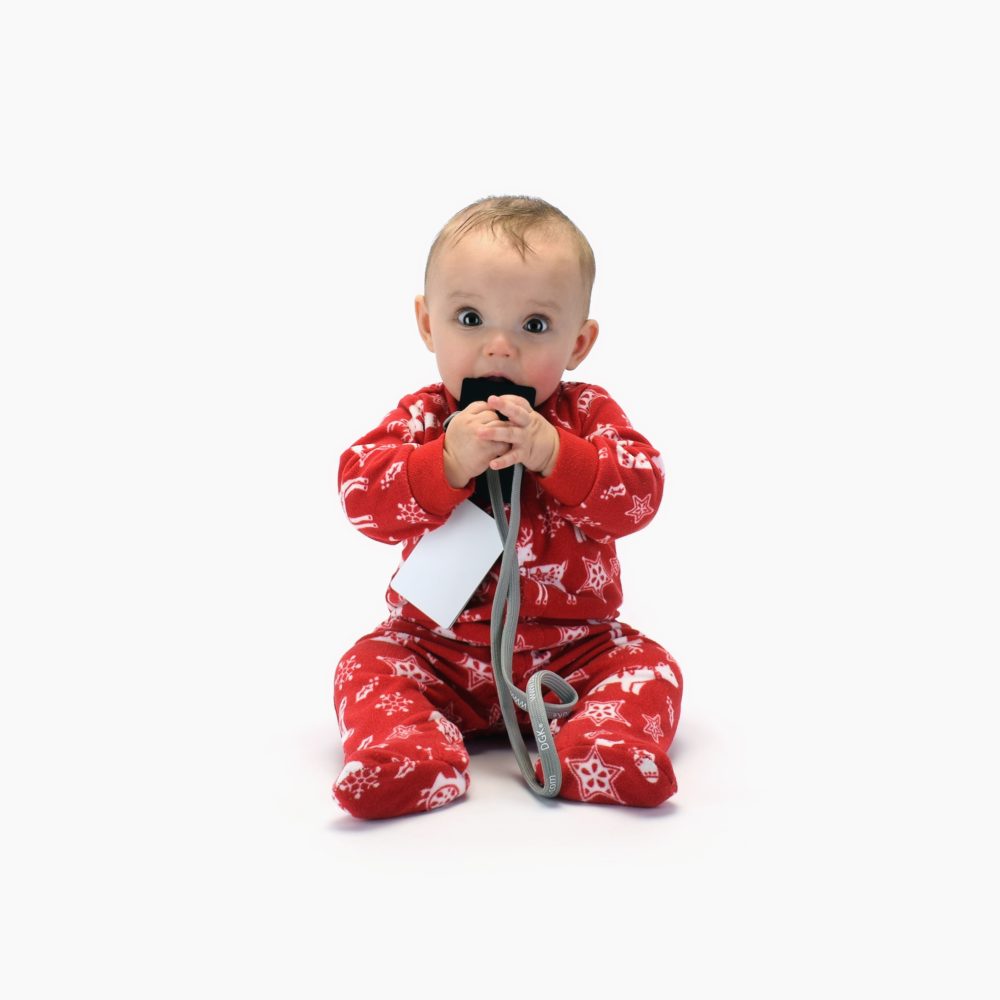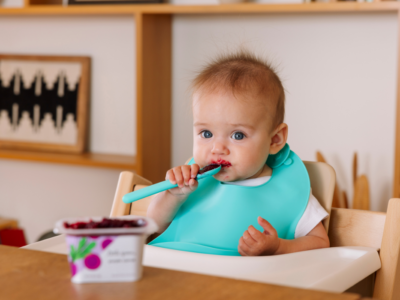By nine months old, your baby is now within the time span where they might start taking those first, precious little steps. Walking is one of the most anticipated milestones, and it also has a huge range of normal. A nine month old baby is well on their way to being fiercely independent, and might even be able to push your hand away when you go to wipe their face after breakfast. Try to encourage this independence by handing your baby a washcloth to wipe their own face… and then go in for a quick swipe when they lose interest. Parenting at this stage becomes somewhat of a race, as baby won’t be in one place for very long!
At nine months of age, your baby may…
Imitate simple play. At nine months, babies are able to start imitating simple play. If you pretend to eat a toy apple, he might just pick it up and do the same thing. Your baby might also try to copy you as you sing, do chores, or even try to swipe or push buttons on your phone.
Practice simple gestures. At this time, your baby might be able to practice simple hand or head gestures. She might shake her head no when you ask a question or try to give her a less-than-favorite food. Or she may wave bye-bye when you tell her it is time to go.
React strongly to new tastes or smells. Previously, your baby may have only had a mild reaction to a new taste, and he may not have reacted to smells at all. However, at this point, he might look around with an exaggerated sniff, trying to find out where that fragrant scent is drifting from. Trying new foods may suddenly become hilarious, photo-worthy moments, as your baby’s tastebuds are now fully developed and his face will tell you exactly what he does (or does not!) enjoy
Say mama. She may not associate it with you yet, but your baby is likely able to say mama, dada, or baba by now. Stringing together consonant and vowel sounds is a new skill, and it means that words with meaning are soon to follow.
Search for hidden objects. Until now, if you completely hide an object, it is unlikely that your baby would have been able to find it. However, around nine months old your infant might watch with earnest as you hide his favorite toy, then crawl over and uncover it. He is now able to put together that a completely hidden toy still exists, and that he has the skills to uncover and play with it!
Point or clap. Between 9 and 12 months old, your baby will likely begin to use her hands for more coordinated movements. The first of these movements will probably be pointing or clapping. Your baby might point to any items she wants you to grab, and then clap when you hand it to her. She is beginning to figure out that she can communicate with you in several different ways.
Stand with support. At 9 months old, your baby will likely stay standing if you help support him in being upright. He will possibly need a hand or piece of furniture to hold on to, but he can likely maintain a standing position for several minutes at a time!
Hate sitting still. Diaper changes may suddenly become an issue around nine months. Your little one will probably want to go, go, go… and that doesn’t leave much time for getting dressed or having a fresh diaper. Your baby probably won’t want to stay in the same spot for long enough to get it done! Try doing a standing diaper change, since your baby likely can’t get very far when on two feet just yet.
Have smooth moves. Those jerky limb movements of early infancy have subsided by this point, and your child can probably pass an object smoothly between his hands. Movements look more coordinated and controlled, and less like random baby twitches. Hand-eye coordination is improving as well, and your baby is likely trying to figure out exactly how much force it takes to throw a ball exactly where he wants it to go!
Life during this time may seem like a whirlwind that never slows down. Your baby is likely starting to test limits and may assert their own freedom by refusing to sleep, or screaming through the bath that they used to really enjoy. Try to go with the flow, and don’t be afraid to switch things up if something isn’t working. If baby refuses a mid-afternoon nap, maybe it’s time to drop down to two instead of three. Or if bath time becomes a battleground, try using a sink or shower for a quick rinse instead. This new development of likes and dislikes becomes even stronger in the coming months, as your baby learns more and more about the world we live in. Try to foster their preferences, and watch as that tiny little personality begins to shine!



